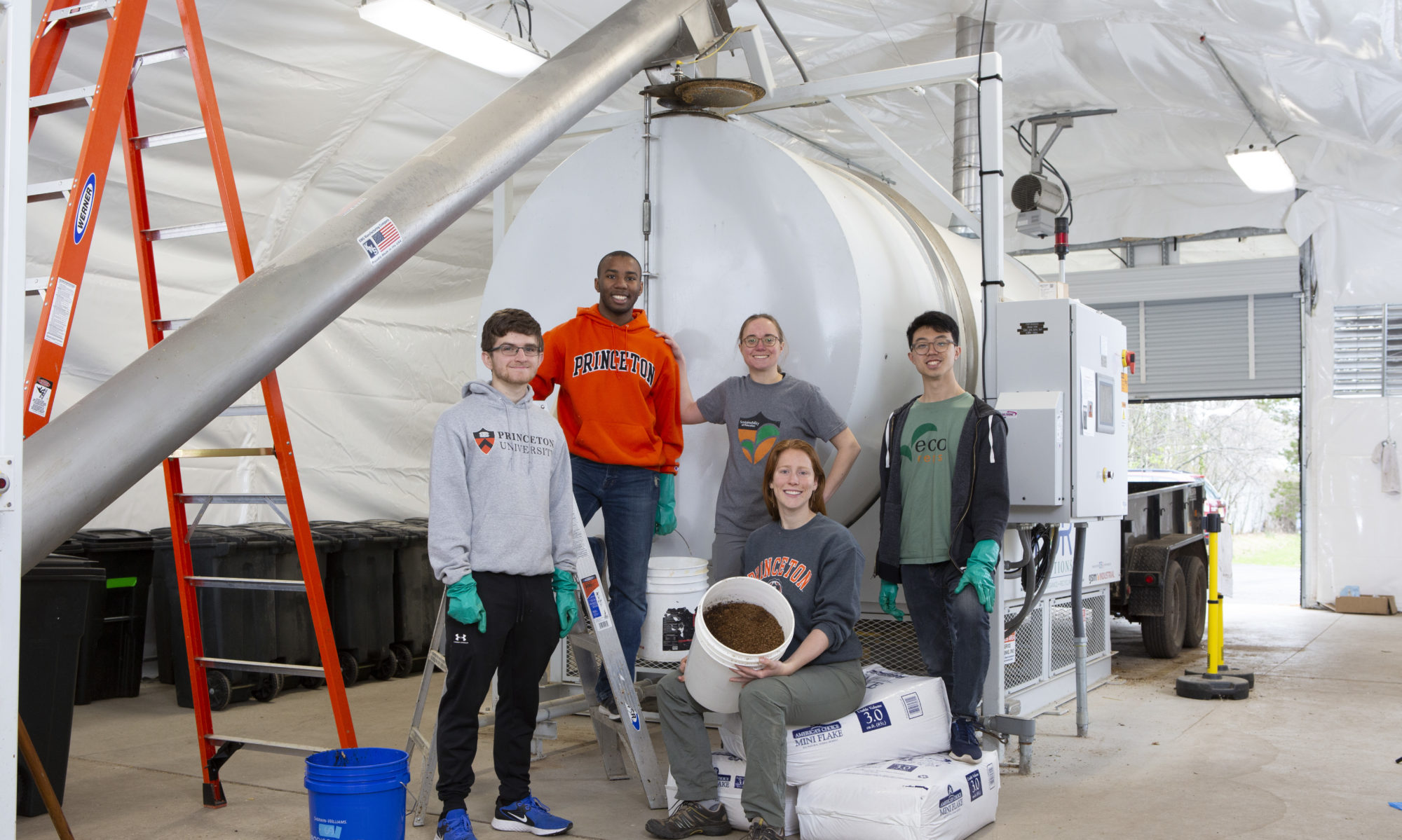Good evening,
This week’s ComPOSTer welcomes Princeton’s newest coffee shop, the Coffee Club, to our growing list of partnering venues!
Located in the taproom of Campus Club, the Coffee Club held its grand opening on April 14th and is run and staffed entirely by students.
With sustainability being one of its core values, collecting coffee grounds for composting at the S.C.R.A.P. lab is now one of the Coffee Club’s initiatives to promote more environmental and socio-economic practices. Additionally, the club also sources pastries and roasted coffee beans from local vendors, and is committed to maintaining affordable — if not the lowest — coffee prices both in and off campus to foster an inclusive environment.
In just under 2 days, the Coffee Club has produced 25 lbs. of coffee grounds, which will provide nitrogen-rich material to our feedstock, and a good source of energy for the microbes that convert the organic matter to compost.
Fun fact: Contrary to belief, coffee grounds will NOT lower pH and make compost more acidic. While fresh coffee grounds may be acidic, once brewed, they are closer to pH neutral. Since acid is water-soluble, any acid in the beans would have already leached into your cup of Joe.

Weekly Data: 4/5 – 4/11
| Total Food | Campus Center/Cafes |
Academic/Residential Buildings
|
Wood shavings (BA/CS)
|
% BA/CS |
Compost Off-loaded | GHG Emissions Saved (MTCO2eq) | |
| Week Totals (lbs.) | 2,697 | 2,589 | 108 | 928 | 34% | 2,000 | |
| CUMULATIVE (lbs) | 68,072 | 67,545 | 527 | 21,062 | 31% | 57,500 | 20 |


























